
How to Prepare for a Successful Swim Meet
Ready to uncork some best times at your next swim meet? Here’s what you need to know to prepare for a swim meet.
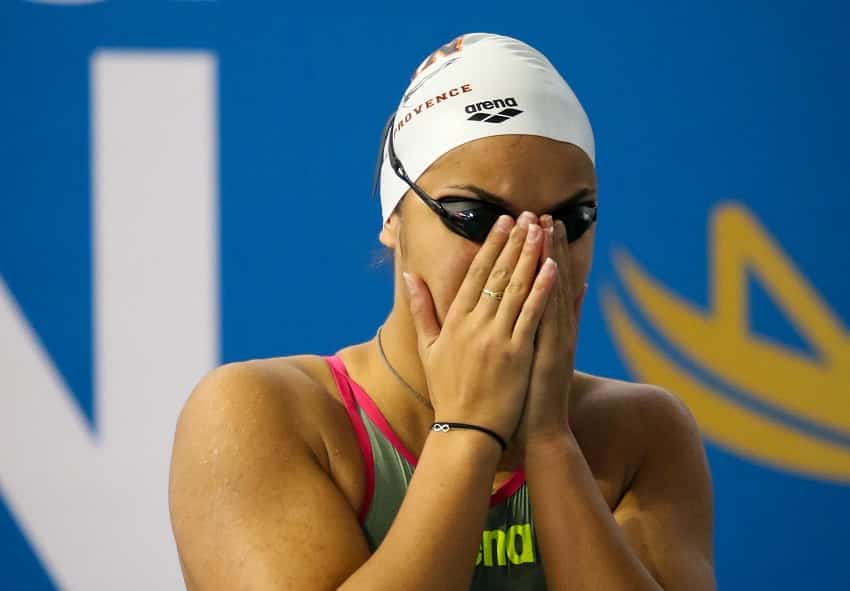
The way we perform on race day is connected to how confident we are when we step up on the block. Here’s the first thing you need to know about laying the groundwork for consistent, PB-crushing self-confidence.
Self-confidence is one of the markers of high-performance swimmers.
Confident swimmers perform at their best, they welcome adversity as challenges, and they enjoy the process.
But developing self-confidence can feel exceptionally tricky.
After all, our confidence is often tied to how we perform in the pool, and as a result, yo-yo’s along with whatever the clock or scoreboard reads.
On days where we shut down the main set, hammer the intervals, and slam our stroke rates like a rusty lawn chair, we walk out of the pool after practice like the Terminator. We have a full charge of self-confidence.
On days where the main set leaves us a crumpled and broken mess on the pool deck, where nothing is progressing and things feel out of our control, we feel like swimming maybe isn’t our bag of chips after all.
The first step in understanding self-confidence is understanding the different types of self-confidence.
Although confidence is a pretty easy feeling to identify—you know it when you feel it—swimmers aren’t always realistic or honest with themselves about the self-confidence they have.
In this post we are gonna break down the different kinds of self-confidence, and how rolling with the wrong type of confidence can lead down the path to disappointing races and practices.
By the time you are done, you will have a more realistic place to start from on your path to stronger, genuine levels of self-confidence.
Although self-confidence looks like it comes in one form, it comes in a few different flavors. Included are optimal confidence, underconfidence, and overconfidence.
They have done the work, relish the small victories along the way, understand that their performance is not contingent how swimmers in the next lane perform, and they set realistic expectations for themselves.
They exude powerful body language, they are process-focused, are calm and relaxed when the pressure is on, and they have a way of enjoying the moment.
Successful performances feed their self-confidence, and poor performances are used as opportunities for course corrections.
Confident swimmers are more likely to take risks: Harder intervals, faster race pace targets, more swim practices.
The confident swimmer also flat-out has more fun showing up to practice and training his or her behind off.
Calling someone over-confident sounds silly, as there isn’t really a thing as having too much confidence.
But rather, the over-confident swimmer has a skewed view of what they are capable of. The confidence they feel isn’t real or based off of reality.
The overconfident swimmer comes in a couple different fits:
Inflated confidence.
When a swimmer thinks they are far faster and better than they actually are. The reasons they got this way are varied: they are exceptionally talented and have been told by coaches, parents and the media that they are exceptional.
They’ve only competed against much slower swimmers. They’ve undercut themselves in training by leaving early on intervals. They aren’t honest with themselves about the effort that they give in practice.
This swimmer is headed for a big surprise the first time they swim against someone of equal talent and skill, but with a much better work ethic, or when they go to competition with overblown expectations.
False confidence.
This is the fake-it-till-you-make-it swimmer. The swimmer who appears confident, but it’s all smoke and mirrors.
Prone to talking trash before the race or practice, this swimmer has fallen hook, line and sinker for the idea that imagined confidence can replace the real thing. Because they aren’t comfortable with looking weak, or fear failure, they paper over their insecurities with brashness.
This swimmer will actually avoid situations where they risk failure, preferring to pull out on account of a last minute injury or excuse (“I’m not fully tapered for this meet, so that is why you beat me” or “I don’t feel great today, so I am going to skip the hard practice planned later.”).
I encountered quite a few swimmers like this during my age grouper years and suspect your group and team has a few as well.
Although the overconfident swimmer knows that positive thinking and confidence can create good results, false confidence and false positivity don’t make for fast swimming, and they certainly don’t create genuine confidence.
Ready?
Buckle up:
The underconfident swimmer focuses on how they compare poorly to others.
They focus on the things they hope to do, or what others have done.
Confidence is rooted in who they are swimming against, and how they measure up against them. When swimming against faster swimmers, their resolve crumbles like a stale cookie.
They don’t recognize and appreciate their own moments where they are crushing it.
Underconfident swimmers make a hobby out of beating themselves up when things go poorly. Instead of picking out the good parts of their performances and capitalizing on them, they stay mentally parked on the things that didn’t go well.
The low confidence promotes bad swims, which reinforces the low confidence, etc. The downward spiral of bad swims and lower confidence is fast, nasty, and cuts off any chance of rebuilding confidence off at the ankles.
The uncertainty and self-doubt that is common with underconfident swimmers creates a ton of anxiety, which doesn’t help matters on race day. A swimmer who is less confident will interpret the normal pre-race nerves and butterflies as a negative.
They experience a lack of control with their swimming, and by extension, their mindset. They get locked into a mindset that they cannot improve their self-confidence, that it’s something they will always struggle with, and that it’s something that they will have to suffer for the remainder of their swimming career.
Needless to say, this swimmer finds it difficult to stay motivated and engaged over the long term, which is particularly frustrating given that the underestimation of their skills and talents isn’t always warranted.
Some of the hardest working, most talented swimmers I’ve ever seen were the same ones who struggled with being underconfident.
This swimmer has raw talent and the work ethic to be successful—if only their low levels of confidence would get out of the way.
Now, you may have read this and recognized glimpses of yourself in all three types.
And that’s fine.
Confidence isn’t set in stone, and can waver depending on a few different factors. Regardless, locking down on that optimal self-confidence is the priority moving forward.
Unlike a tech suit, or a magical supplement (450% gainz!), legit self-confidence isn’t something you can buy at your local swim shop or GNC.
It’s something you gotta earn.
Something you work for.
And if that is something you are interested in doing, and you want some ideas for how to go about it in an efficient and proven way, I’ve put together a series of strategies that you can incorporate into your training to maximize real, genuine self-confidence.

Olivier Poirier-Leroy Olivier Poirier-Leroy is the founder of YourSwimLog.com. He is an author, former national level swimmer, two-time Olympic Trials qualifier, and swim coach.
✅ Free shipping on Orders over $49
✅ Price Match Guarantee
✅ Best selection of gear for training and competition
✅ Fast and Easy Returns

“This is the best book I have ever seen concerning mental training.” — Ray Benecki, Head Coach, The FISH Swim Team


Ready to uncork some best times at your next swim meet? Here’s what you need to know to prepare for a swim meet.

The right mental skills can help you unlock faster swimming on race day. Here is a look at the right skills to use for competition.
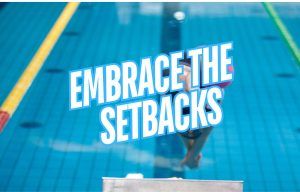
Frustrated with setbacks in the pool? Here are some tips for improving your ability to embrace setbacks and swim faster.
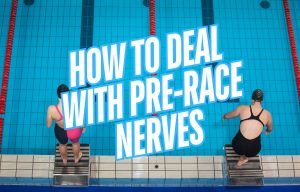
Struggling to swim fast under pressure? Here are some tips for how to manage pre-race nerves on race day.
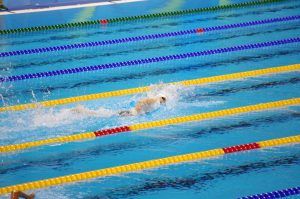
Swimmers often find themselves stuck with doubt when it comes to doing tough things in the water. Here’s a simple question to ask when you find doubt and uncertainty stopping you from excellence.
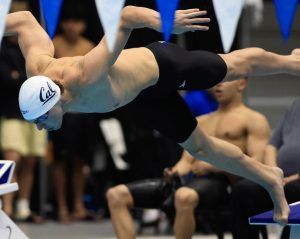
Looking to take your mindset and swimming to the next level? Here are five things you can learn from Jack Alexy, one of the fastest freestylers on the planet.
SITE
SHOP
GUIDES

LANE 6 PUBLISHING LLC © 2012-2025
Join 33,000+ swimmers and swim coaches learning what it takes to swim faster.
Technique tips, training research, mental training skills, and lessons and advice from the best swimmers and coaches on the planet.
No Spam, Ever. Unsubscribe anytime.
